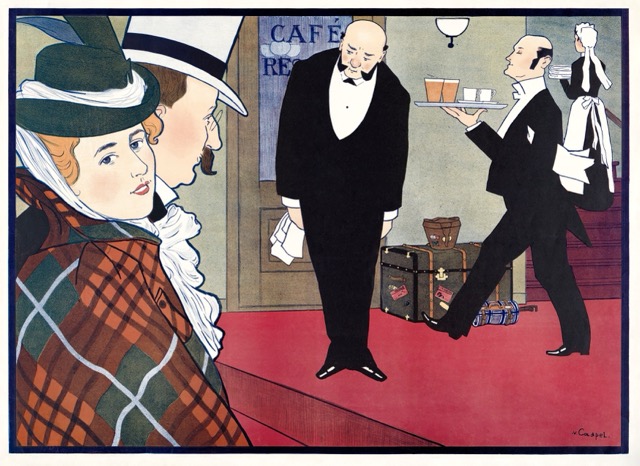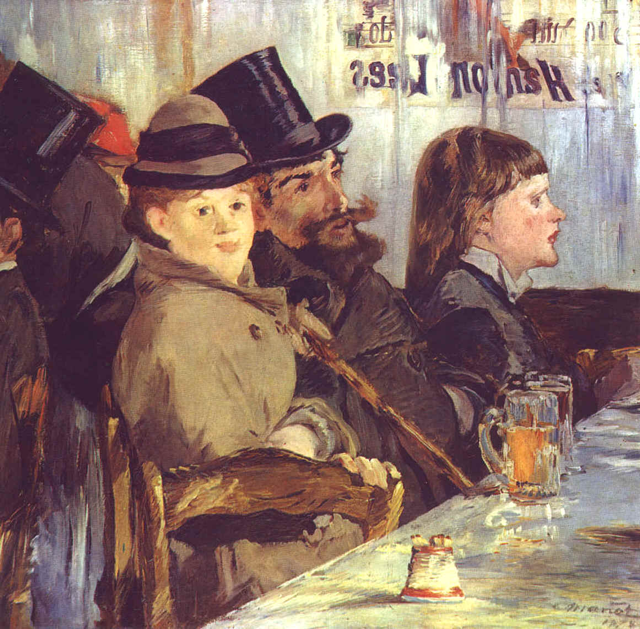The Tipping Point
Our Restaurant Industry Must Change

Both major 2024 presidential candidates, Kamala Harris and Donald Trump, have announced their support for eliminating taxes on tips ahead of the 2024 presidential election. Discussions of pandering and empty promises aside, the societal implications which led to this being a popular policy are disappointing. Tipping culture has long been abused as an unethical pressure applied to restaurant-goers by greedy owners and unions. A skewed value system in which common citizens are conned into paying server's wages instead of their employers. Cloaked behind the guise of keeping prices low and customers happy, tipping is a result of deeper problems in the restaurant industry and the nonsensical social norms Americans subjugate ourselves to when interacting with services.
Gratuity culture did not begin in the United States. It was birthed in Tudor England to be used as a reward from a master to his serf for a job done exceptionally well. Over time, it diffused into general English culture and was dragged to America post-Civil War where it was met with distrust. Seen as an aristocratic mechanism used to enforced social class boundaries, it went against the grain of America's anti-class, democratic ethos. Popular Americans of the industrial revolution age such as Andrew Carnegie, Mark Twain, and John D. Rockefeller, were all vocal anti-tippers. There was a racial component to tipping: African Americans in the service industry, especially in restaurants and on trains, were not paid, instead they received tips which they were expected to live off of. 100 years later, here we are: the federal minimum wage for tipped workers is $2.13/hr. and we as consumers are expected to cover the difference between that and a living wage by tipping.
This adds a captivating, inescapable aspect to the tip: responsibility. Now, the patrons hold the responsibility of their waiters welfare and salary which leads to an obligation and then becomes a norm.
After my brief summary of tipping culture's history as well as it's place in the restaurant industry, we may begin to deconstruct it. I've broken my critique into two parts: tipping is income redistribution, the age of the waiter is over.
Tipping is Income Redistribution
I'd like to inspect tipping through the lens of economics. The standard notion was that diners are wealthier than their servers and therefore what may be a small sum to them is viewed as a larger amount to a waiter. Today, this is absolutely not always the case. Restaurants are no longer for the rich but also for broke students on dates, average earners who want to enjoy a good meal, or families who don't have the time or energy to cook at home every night of the week. This means that the value of the money tipped between patrons and waiters could be a 1:1 ratio, perhaps even higher. This is not merely paying for a service–the price you pay the restaurant is meant to pay for the food and the services included in your dining experience. No, this is an example of income redistribution: from the patron to their server.
It's a fascinating phenomenon as most income redistribution occurs through social welfare programs run by governments. To redistribute your income to someone who is in need is a donation; however, it seems likely that few waiters would accept the classification of their tips as charitable donations. They instead might argue that their tips are necessary for them to make a living wage. It's a sad statement but it's true. In all but seven states, restaurants do not need to pay their workers more than $2.13/hr. as long as they make over $5.12 per hour in tips. Abolishing these archaic laws and requiring restaurants pay all their workers the federal minimum wage would mean waiters could stop relying on tips (i.e. donations) for their wellbeing.
It's important to be careful not to blame waiters for their situation. The blame lies with the restaurant industry and their unions. Tipping in its current form is a way for restaurants to give their employees less money and keep it for themselves. Employment should come with a living wage and forcing servers to rely on tips to survive is unethical and lazy. It would be much more practical to raise prices so that they can include a full wage for the entire waitstaff. If done correctly, this would not cost more than the current tipping system
Eliminating taxes on tips would reinforce the status quo, increasing the dependence of waiters on their tips and squashing any hopes of giving waiters a living wage.
The Age of Waiting is Over
While discussing methods of valuing a service, I'd like to explore the reasoning for these services value. Is a waiter an integral part of going to a restaurant? For some it may be, however many are likely indifferent, only interacting with their waiter to order & receive food, then pay the check. It seems that there is a high likelihood that most mid-tier restaurants could stay competitive and maintain the majority of their patrons without waiters, instead using a fast-food-style system where diners get their food themselves. If this could keep costs low and eliminated the expectation of a tip, it could even lead to an increase in customers.
It's difficult to talk about removing jobs without personal anecdotes and politics getting involved. Employment is absolutely a sensitive topic and can hit close to home for many. However, when a job stops providing reasonable value, we must reconsider. If waiting is truly not valuable enough for restaurants to pay their servers a living wage, forcing them to rely on tips, it's a clear sign that we no longer have room for it in our economy.
Once again, I stress how important I feel it is that we do not blame waiters for our situation. I am not advocating for unemployment, jobs are not zero-sum and there should be other jobs in the service industry which waiters can pivot to, and jobs which a new format of restaurant would create. I am also not recommending restaurants abolish every waiting job. In many upper-scale restaurants, having an attentive, knowledgeable waiter is part of the experience of the meal. However, for most people in most restaurants, the way your food reaches your table does not affect its taste and paying for a waiter is a burden not a privilege.

A Blueprint for the Future
How can we develop a new norm? What tools can we use to dig ourselves out of the rabbit hole which we've dug? I propose we draw inspiration from Europe. Europe managed to abolish their tip culture while maintaining their reputation for high-quality restaurants. Incorporating the entire price into the prices listed in the menu helps to eliminate confusion and ensures waiters will get paid a dignified wage. Higher sticker prices don't scare customers away and including tax in that price is a nice way to make everyone's lives easier.
Another option is forgoing the waiter all together. Customer expectations mean this won't be possible in high class restaurants however in medium class local restaurants this is absolutely an option. Either announcing the customers name from a PA system or vibrating pagers are reasonably unobtrusive ways to get food to the diner without requiring a tip/higher prices which factor in a full wage.